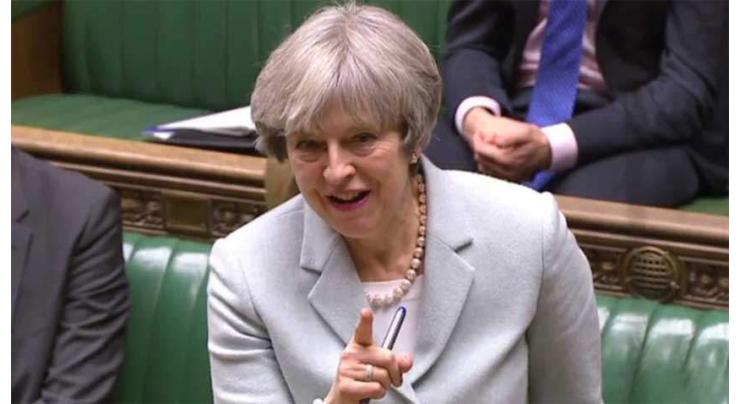
- Home
- World
- News
- UK Economic Affairs Institute Issues Alternative Plan for Trade Ties With EU After Brexit
UK Economic Affairs Institute Issues Alternative Plan For Trade Ties With EU After Brexit
Sumaira FH Published September 24, 2018 | 08:06 PM

The UK Institute of Economic Affairs (IEA), a Westminster-based free-market think tank, on Monday unveiled an alternative plan for London's trade relations with the European Union and the rest of the world after Brexit, urging the government to drop the Chequers proposal.
LONDON (UrduPoint News / Sputnik - 24th September, 2018) The UK Institute of Economic Affairs (IEA), a Westminster-based free-market think tank, on Monday unveiled an alternative plan for London's trade relations with the European Union and the rest of the world after Brexit, urging the government to drop the Chequers proposal.
The authors of the report are Shanker Singham, the director of the International Trade and Competition Unit (ITCU) of the IEA, and senior research analyst for IEA's Trade and International Competition Unit Dr. Radomir Tylecote.
"The governing principle of this alternative approach is the pursuit of a competitive and thriving UK economy," the paper reads.
The suggested approach is based on four pillars: making "unilateral moves" in domestic and trade policy; undertaking bilateral agreements with others "concurrently during the EU negotiation,"; seeking membership of major trade agreements such as the Comprehensive and Progressive Trans-Pacific Partnership (CPTPP) and North American Free Trade Agreement (NAFTA); and using the WTO membership "to promote wealth creation for the UK economy and the world.
"
"We'we made a number of mistakes in this process, most of which have been related to letting ourselves be on the EU's battlefield as opposed to a sort of a wider global field which we should be on because Brexit is a major global event," Singham told the Sky news broadcaster.
The alternative plan was supported by UK former Foreign Secretary Boris Johnson who described it as "a plan the EU would understand and respect."
Under the Chequers proposal, adopted by the UK cabinet in July, London and Brussels could create a free trade area for goods and maintain a "common rulebook" for all goods. The European Union, however, rejected the proposal as undermining the single market.
Related Topics
Recent Stories

Currency Rate In Pakistan - Dollar, Euro, Pound, Riyal Rates On 25 April 2024

Today Gold Rate in Pakistan 25 April 2024

Mired in crisis, Boeing reports another loss

Session Awarding Ceremony 2024 held at Cadet College Muzaffarabad

Austrian ski great Hirscher to make comeback under Dutch flag

Pakistan, Japan agrees to convene 'Economic Policy Dialogue'

FM Dar conveys deepest sympathy on torrential rains devastation in UAE

Spain PM Sanchez says weighing resignation after wife's graft probe

Tennis: ATP/WTA Madrid Open results - 1st update

Long-lost Klimt portrait auctioned off for 30 mn euros

Osaka seals first win on clay since 2022 in Madrid

Earthquake jolts Karachi
More Stories From World
-
Blinken calls for US, China to manage differences 'responsibly'
9 minutes ago -
Norway oil giant Equinor's profit falls on lower gas prices
9 minutes ago -
N. Macedonia's right-wing presidential candidate wins 1st round
29 minutes ago -
Vietnam court jails soft drinks tycoon in $40 million scam case
29 minutes ago -
The guardian angels of the source of the Seine
49 minutes ago -
Star Dudamel brings inclusive vision to New York Philharmonic
2 hours ago
-
Paris dream of swimming in the Seine finally within reach
2 hours ago -
Portugal's Carnation Revolution, 50 years on
2 hours ago -
Tough times for Argentine factories as consumers penny-pinch
2 hours ago -
Use of alcohol and e-cigarettes among youth 'alarming': WHO
2 hours ago -
Football: Italian Cup result
2 hours ago -
Bird flu in humans? Experts see little risk
2 hours ago